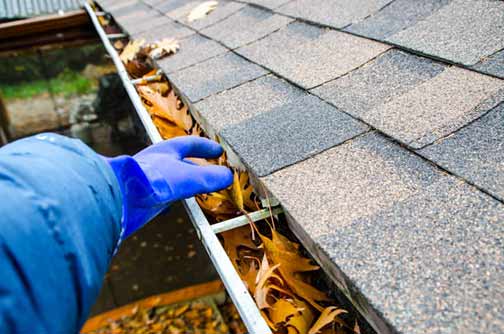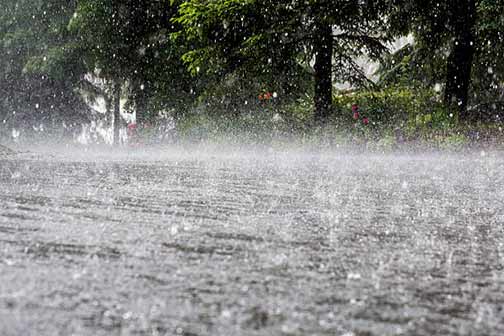The Unseen Consequences of Heavy Rain on Residential Plumbing Systems
Heavy rainfall is a natural phenomenon that can have significant impacts on various aspects of our daily lives. Among these, the effects on residential plumbing systems are often overlooked until they culminate in serious issues. Understanding how heavy rain can affect your home’s plumbing infrastructure is crucial for safeguarding your residence against potential water damage. The unseen consequences of heavy rain can manifest in various forms, from immediate flooding to long-term structural damage, making it imperative for homeowners to be aware and prepared.
Understanding the Dynamics of Heavy Rainfall
Heavy rain can be defined as rainfall that exceeds the normal precipitation levels over a short period. This type of weather condition can lead to a rapid increase in water volume, overwhelming drainage systems and causing water to accumulate in areas where it typically wouldn’t. The dynamics of heavy rainfall involve not just the volume of water but also the speed at which it falls, which can exacerbate the pressure on residential plumbing systems. This sudden influx of water can have both immediate and long-term effects on residential plumbing systems, leading to a cascade of potential problems.
The Immediate Impact of Heavy Rain on Plumbing
When heavy rain occurs, one of the most immediate impacts is the potential for flooding. Residential plumbing systems, including drains and sewers, are designed to handle a certain capacity of water. When this capacity is exceeded, it can lead to backups and overflows. These backups can cause water to enter homes through sinks, toilets, and floor drains, leading to water damage and potential health hazards from contaminated water. The immediate impact is not just limited to flooding; it can also include the disruption of water supply and the malfunctioning of plumbing fixtures due to increased pressure in the system.
Long-Term Effects on Plumbing Systems
Beyond the immediate effects, heavy rainfall can also have long-term consequences for residential plumbing systems. Prolonged exposure to excessive moisture can lead to the deterioration of pipes and plumbing fixtures. Over time, this can result in leaks, reduced water pressure, and even burst pipe emergencies. Additionally, the shifting of soil due to water saturation can cause pipes to become misaligned or damaged, further exacerbating plumbing issues. These long-term effects can significantly impact the structural integrity of a home’s plumbing system, leading to costly repairs and maintenance if not addressed promptly.
The Role of Drainage Systems in Mitigating Rainfall Impact
Effective drainage systems are essential for mitigating the impact of heavy rainfall on residential plumbing. These systems are designed to channel excess water away from homes and into designated drainage areas. However, when these systems are clogged or poorly maintained, they can fail to perform their function, leading to water accumulation and increased pressure on plumbing systems. Regular maintenance and inspection of drainage systems are crucial for ensuring their effectiveness during heavy rain events. Homeowners should ensure that their drainage systems are clear of debris and functioning properly to prevent water from backing up into the home.

Preventive Measures for Protecting Your Home’s Plumbing
Homeowners can take several preventive measures to protect their plumbing systems from the effects of heavy rain. Regular maintenance, such as cleaning gutters and downspouts, can help prevent water from pooling around the foundation of the home. Installing backflow prevention devices can also protect against sewage backups. Additionally, ensuring that the home’s landscape is graded away from the foundation can help direct water flow away from the property. These preventive measures can significantly reduce the risk of water damage and help maintain the integrity of the plumbing system.
Expert Advice on Managing Heavy Rain Risks
Speaking with plumbing professionals can provide homeowners with expert advice on managing the risks associated with heavy rain. Professionals can conduct thorough inspections of plumbing systems to identify potential vulnerabilities and recommend appropriate solutions. They can also offer guidance on the installation of sump pumps and other protective measures to safeguard against water damage. Expert advice can be invaluable in identifying potential issues before they become major problems, ensuring that homeowners are well-prepared for heavy rain events.
The Importance of Insurance in Protecting Against Water Damage
Having adequate insurance coverage is another important aspect of protecting your home from the effects of heavy rain. Homeowners should review their insurance policies to ensure they include coverage for water damage caused by natural disasters. This coverage can provide financial protection in the event of significant water damage, helping to cover the costs of repairs and restoration. Understanding the terms of your insurance policy and ensuring that you have the right coverage can provide peace of mind and financial security in the face of heavy rain events.
Understanding the Environmental Impact of Heavy Rain
Heavy rainfall not only affects residential plumbing systems but also has broader environmental impacts. Excessive rain can lead to soil erosion, waterway pollution, and habitat disruption. Homeowners can contribute to reducing these environmental impacts by implementing sustainable landscaping practices, such as using rain gardens and having a French drain system installed, which help absorb and filter rainwater naturally. Understanding the environmental impact of heavy rain can encourage homeowners to adopt practices that not only protect their homes but also contribute to environmental sustainability.
Future Trends in Plumbing Systems and Rainfall Management
As climate change continues to influence weather patterns, the frequency and intensity of heavy rainfall events are expected to increase. This trend underscores the importance of advancing plumbing technology and infrastructure to better manage these changes. Innovations such as smart water management systems and environmentally friendly materials are likely to play a significant role in enhancing the resilience of residential plumbing systems against heavy rain. Future trends in plumbing systems will focus on sustainability and resilience, ensuring that homes are better equipped to handle the challenges posed by heavy rainfall.
Conclusion: Staying Prepared for Heavy Rainfall
In conclusion, while heavy rain is a natural occurrence, its impact on residential plumbing systems can be significant. By understanding these impacts and taking proactive measures, homeowners can protect their properties from water damage and ensure the longevity and efficiency of their plumbing systems. Staying informed and prepared is key to mitigating the risks associated with heavy rainfall, ultimately safeguarding both your home and the environment. Preparation and awareness are essential in ensuring that homes remain resilient in the face of increasingly unpredictable weather patterns.


